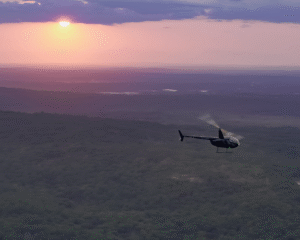Top 5 Tips for Your First Solo Flight
Your First Solo Flight: A Milestone Worth Remembering
Few moments in aviation compare to the feeling of lifting off alone for the very first time. Your first solo flight marks a major step in your helicopter training — proof that your hard work, focus, and dedication are paying off. At Blue Hill Helicopters, based just outside Boston, we’ve helped hundreds of students reach this milestone safely and confidently.
Here are five proven tips from our instructors to help you make your first solo flight a success.
1. Trust Your Training
By the time your instructor clears you to solo, you’ve already demonstrated solid handling skills, decision-making, and understanding of safety procedures. Trust the training process — and yourself. Review your preflight checklist, weather conditions, and local airspace procedures. Remember, your instructor wouldn’t sign you off unless you were ready.
Confidence comes from preparation, not luck.
2. Keep It Simple
Your first solo flight isn’t about doing anything new or complicated. Focus on the basics: smooth control inputs, maintaining proper altitude, and staying ahead of the aircraft. Fly the same traffic pattern you’ve practiced dozens of times. Avoid the temptation to “show off” or try advanced maneuvers — this flight is about building confidence in your ability to operate independently.
3. Stay Ahead of the Helicopter
Helicopters react quickly — that’s part of what makes them incredible to fly. But it also means you need to stay one step ahead of what’s happening. Anticipate your turns, power changes, and radio calls. Thinking ahead helps prevent mistakes and keeps your flight smooth and professional.
4. Manage Your Emotions
It’s completely normal to feel a mix of excitement and nerves. Take a few deep breaths before takeoff. Keep your focus on your training, not your adrenaline. Once you lift off, it’ll feel familiar — because it is. This is the same helicopter, same pattern, same airfield you’ve practiced countless times with your instructor.
5. Reflect and Learn
After you land, take a moment to enjoy what you’ve accomplished. Then, debrief your flight with your instructor. What went well? What could be smoother next time? Each solo experience builds confidence and competence — setting you up for cross-country solos, advanced maneuvers, and eventually, your checkride.

